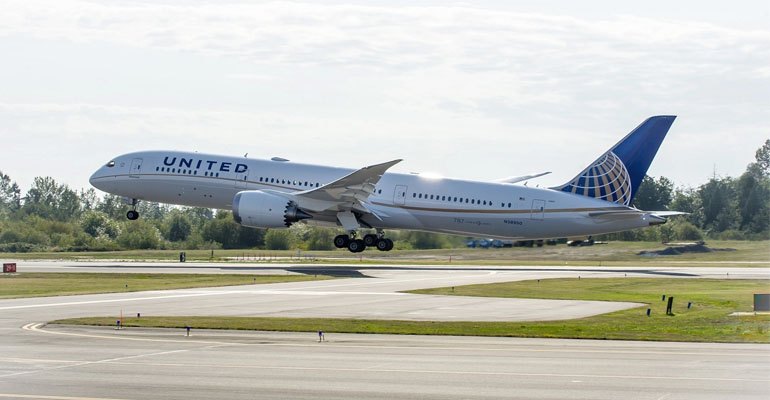United Airlines today made history by becoming the first U.S. airline to publicly commit to reducing its own greenhouse gas emissions by 50 percent by 2050, further strengthening the carrier’s ambition to be the world’s most environmentally conscious airline.
United’s pledge to reduce its greenhouse gas emissions by 50 percent relative to 2005 represents the equivalent of removing 4.5 million vehicles from the road each year, or the total number of cars in Los Angeles and New York City combined.
The airline will continue to invest in the company’s ongoing environmental initiatives to support this commitment, including expanding the use of more sustainable aviation biofuels, welcoming newer, more fuel-efficient aircraft into its fleet and implementing further operational changes to better conserve fuel.
“At United, we believe there is no point in setting challenging and ambitious goals without also taking tangible steps towards achieving them, especially when it comes to securing the health of our communities and our planet,” said Oscar Munoz, United’s chief executive officer. “While we’re proud to be first U.S. carrier taking such an ambitious step, it is a distinction we look forward to sharing as the rest of the industry catches up and makes similar commitments to sustainability.”
Also today, Agrisoma Biosciences, a Canadian agri-tech company that sells Carinata seeds used to produce aviation biojet fuel, announced it will partner with United Airlines and World Energy on Agrisoma’s second international commercial flight powered by biojet fuel made from Carinata seed oil. The nonstop San Francisco to Zurich flight on a Boeing 787 departs on Sept. 14 at 2:10 p.m. from San Francisco International Airport and will arrive on Sept. 15 at 10:10 a.m. at Zurich Kloten Airport.
“This flight is another milestone for the aviation industry’s move toward low-carbon fuels,” said Steve Fabijanski, founder, CEO and president of Agrisoma. “At 11 hours, it is the longest transatlantic biojet flight undertaken to date, and, with the fuel-efficient Boeing 787, represents the lowest carbon footprint commercial flight across the Atlantic. It is our second international biojet flight powered by Carinata, but there are more to come.”

